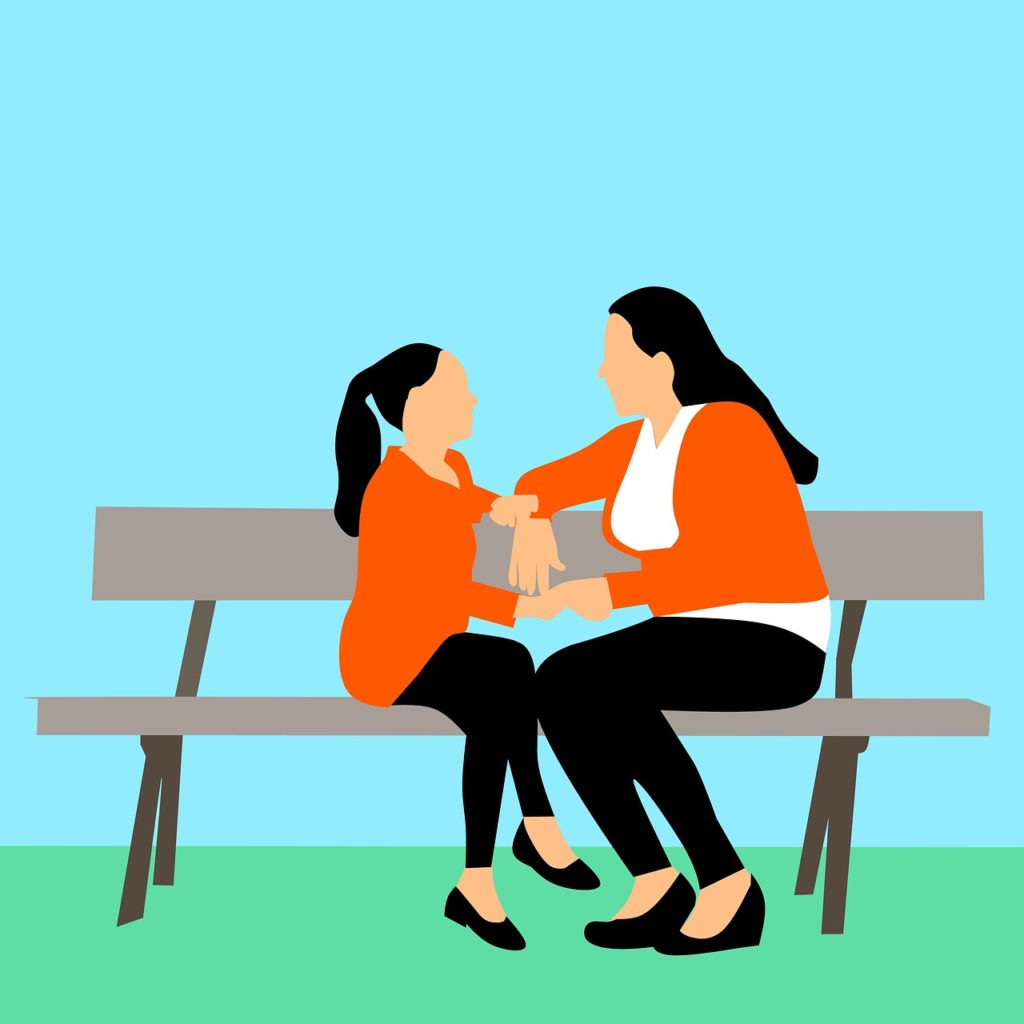As Americans grapple with the recent racially motivated mass shooting in Buffalo, parents may be wondering how to talk with their kids about the incident—and about hate crimes in general. It’s important to help children understand what happened, address their concerns and fears, and maybe even take action to safely and effectively challenge the hate. The following strategies may help.
Initiate the conversation. Hate is an uncomfortable topic and one that most parents would rather avoid. Nevertheless, it’s a conversation that needs to take place, even if you think your child may be unaware of a particular incident. Older children have access to social media, television, and the internet, and they hear bits and pieces of the story from friends, all of which may not be accurate. It’s better if they get an accurate account of the incident from you, delivered in developmentally appropriate language. Not knowing the facts may contribute to their anxiety and fear.
Listen carefully. Find out what your child or teen already knows and whether that information is correct. This is a good starting point for the conversation. Stay calm and listen carefully to uncover any fears or concerns. Then share the latest, most accurate information available and gently correct any misinformation or misconceptions. Because these are often fluid situations, make sure your child understands that additional facts could emerge. Encourage him or her to ask questions, and answer them honestly.
Look for signs of sadness or worry. In the aftermath of an event such as this, it’s not uncommon for young people to be worried and confused about what happened and why it occurred. They may be fearful or anxious, have trouble sleeping and eating, struggle to stay focused in school, or hesitate to participate in certain activities. While most of these reactions subside within a few weeks, it’s important to keep a close eye on your child’s behavior.
Limit exposure to media and adult conversations. Very young children should not be exposed to the media at all; however, it’s more challenging to limit exposure in older children and teens with access to the internet and social media. When kids don’t hear the entire story, they may try to fill in what they don’t know with inaccurate information. Likewise, reserve your conversations with other adults to a time when your kids are not around. Kids generally hear more than you think they do.
Talk about why these incidents occur. Like most of us, young people often don’t understand what motivates an individual to commit a hate crime. They simply don’t understand why someone would want to hurt another person based on the color of their skin, religious beliefs, gender, or ethnicity. Do your best to explain the basis of discrimination and prejudice at a level your child can understand. Then talk about your family’s beliefs on these subjects.
Focus on safety. When children hear about a hate crime, they may worry that it could happen in their school, church, or community. Respond honestly about the likelihood of such an incident taking place. But be sure to also discuss your family’s own plans for staying safe in a crisis. It’s always best to equip your child with the information he or she needs to feel safe. Above all, help them understand the importance of telling someone if they witness hateful behavior toward others.
With hate crimes on the rise, it’s more important than ever for families to have these discussions. During times such as these, children count on an adult they can trust for much-needed guidance. These tips are intended to help both you and your children as you struggle to make sense of what occurred.
Image by mohamed Hassan from Pixabay
Dr. David Lowenstein is a Columbus, Ohio-based psychologist with more than 35 years of experience. He conducts individual, family, and group therapy sessions in his German Village office and also via telehealth. Dr. Lowenstein is also available for expert forensic testimony, and for educational workshops and presentations. He is frequently called upon as an expert source for print, radio, and broadcast media. Contact Dr. Lowenstein at Lowenstein & Associates, 691 South Fifth Street, Columbus, Ohio, 43206, or call 614.443.6155 or 614.444.0432.


